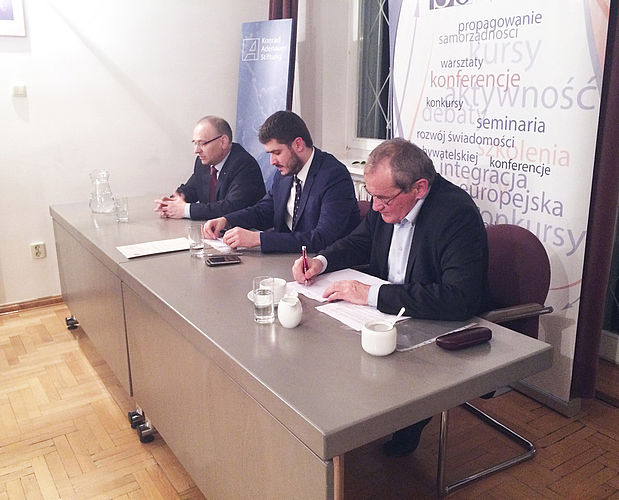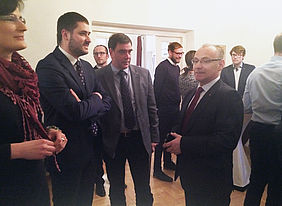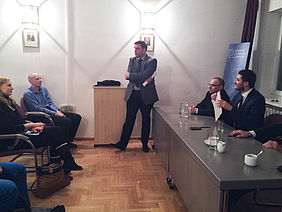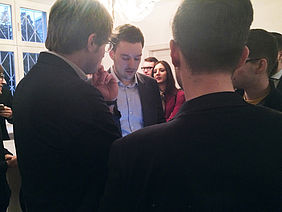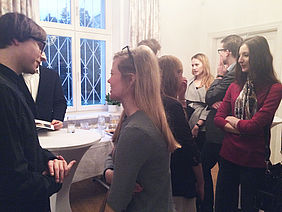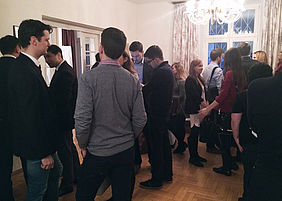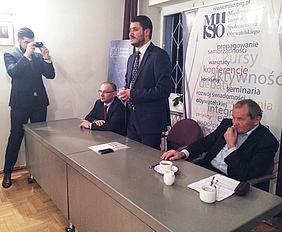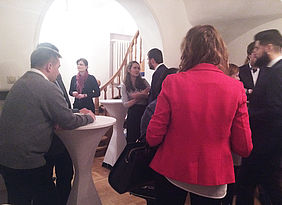The Debate Club on the Civil Society” is a project launched in February 2015 by the International Institute of the Civil Society and The Konrad-Adenauer-Stiftung in Poland. It is targeted at all active leaders of non-governmental organisations, as well as business, cultural, political, educational ones, not excepting people active in the areas of administration and media. The Debate Club provides a platform for interesting, free and factual discussions with outstanding figures from public life concerning civil society as well as modern world problems, as well as chances and challenges. Moreover, the project's aim is to promote the idea of civil society, inculcating civil attitude, increasing the level of socio-civic participation and sensitizing the participants to certain areas of public life. The above mentioned initiative also creates a chance for carrying out numerous informal conversations, and will allow the project's partakers to meet interesting people with similar interests and to share their experiences, ideas and build civil society leaders' networking.
Special Guests of the inaugural meeting are people who, from their earliest years, actively and consequently build the civil society in Poland. As they say themselves, they are „civil society's practitioners”.
During the meeting they share their experiences in this area and tell everyone how the development of the realization of laws concerning human rights and civil freedoms look from their perspective. As Henryk Wujec stressed, the change was possible only by means of law allowing to establish free trade unions and the establishment of „Solidarność” (eng. Solidarity - polish trade union). On the other hand, Jerzy Borowczak underlined, that the beginning of the civil movement has its roots in small apartments, where ideas such as freedom, democracy and civil rights were being discussed and where the plans of civil protests and social actions againts the government and the prevailing system were born. Both guests raised issues of workers' control, local self-government, empowerment, civil rights and martial law, which evaporated – for a short period of time – hope for change and a better future. Deliberations of the Round Table, polish parliamentary elections held in 1989, as well as people who contributed to the existence of a free, sovereign country we live in now also took place.
Thew speeches were followed by the second part of the meeting, when the debate's participants discussed with Henryk Wujec and Jerzy Borowczak issues concerning the definition of civil society, its condition in Poland and tried to find out, what method of motivating citizens to socio-civic participation and influencing their closest environment would be the most effective. Amongst topics discussed appeared the need of shaping responsible civic postures and questions of raising next generations of leaders of the civil society and the way in which we wish to influence the future. In this context participants stressed the role of non-governmental organisations, as the ones having the most potential.
Mr Henryk Wujec concluded, that "The spirit of "Solidarność" wears non-governmental organisations' sweatshirts - this is where people who want to do something good are gathered."


